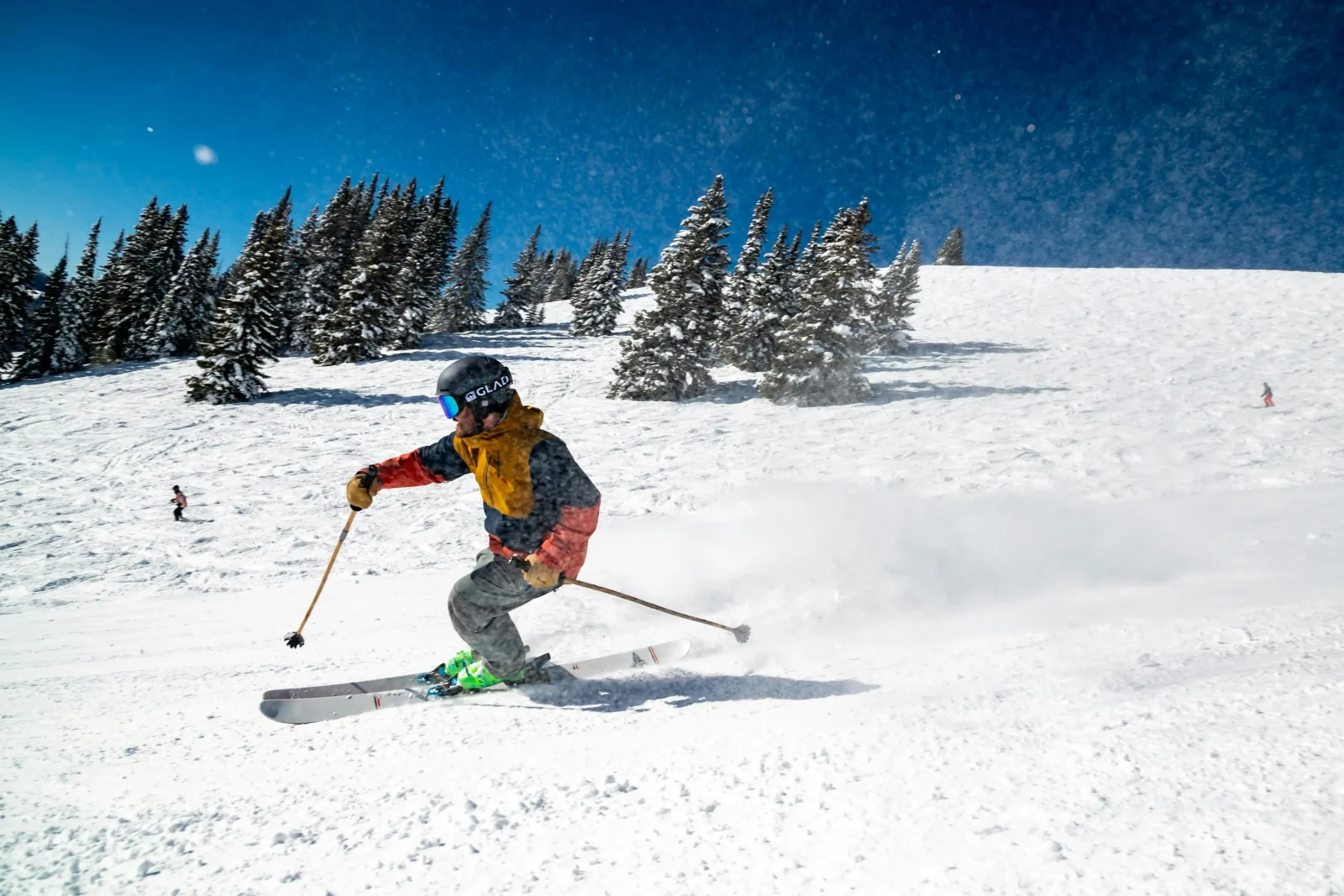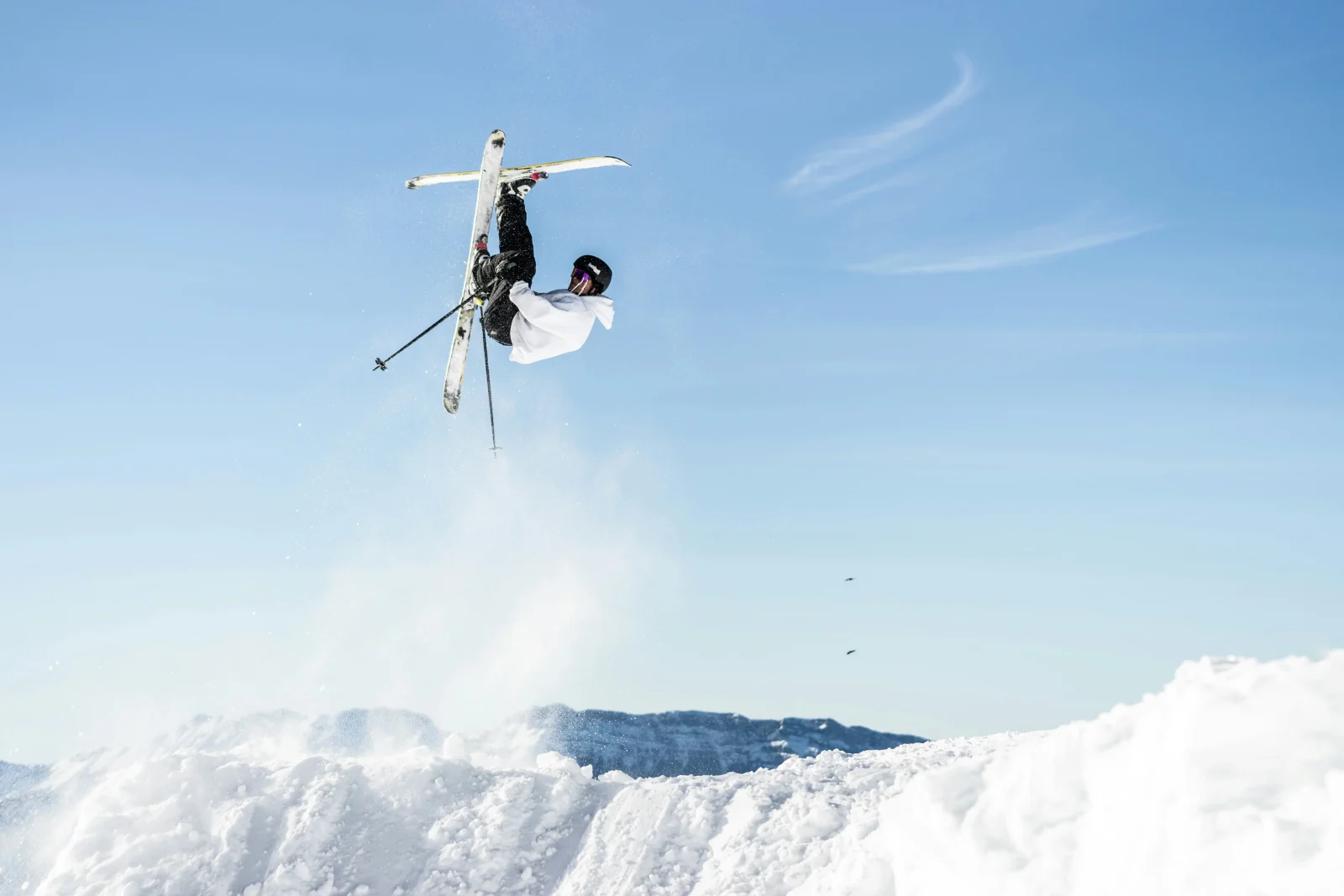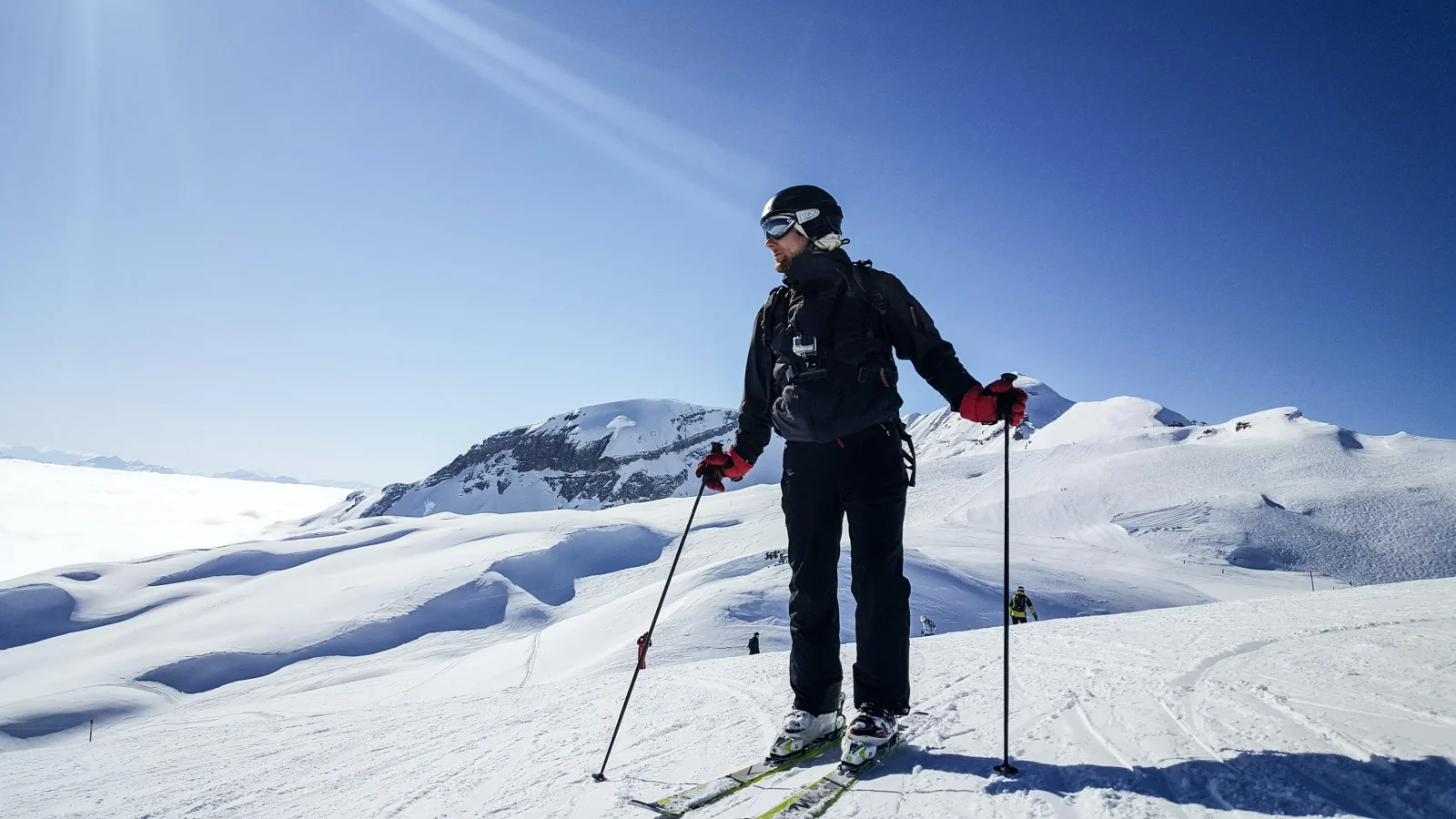Learning to ski will take a little time and patience, but once it clicks you’ll be so grateful that you took that first step and tried something new! With some practice and perseverance, you can build your skiing skills on the slopes in a matter of days and it won’t be long before you feel confident in your skiing ability and you’ll wonder why you didn’t start sooner!
In this blog, we outline how long it takes to learn to ski and what factors can affect this, so you can manage your expectations and be as prepared as possible for your first time on the slopes!
Factors that Influence How Long it Takes to Learn to Ski
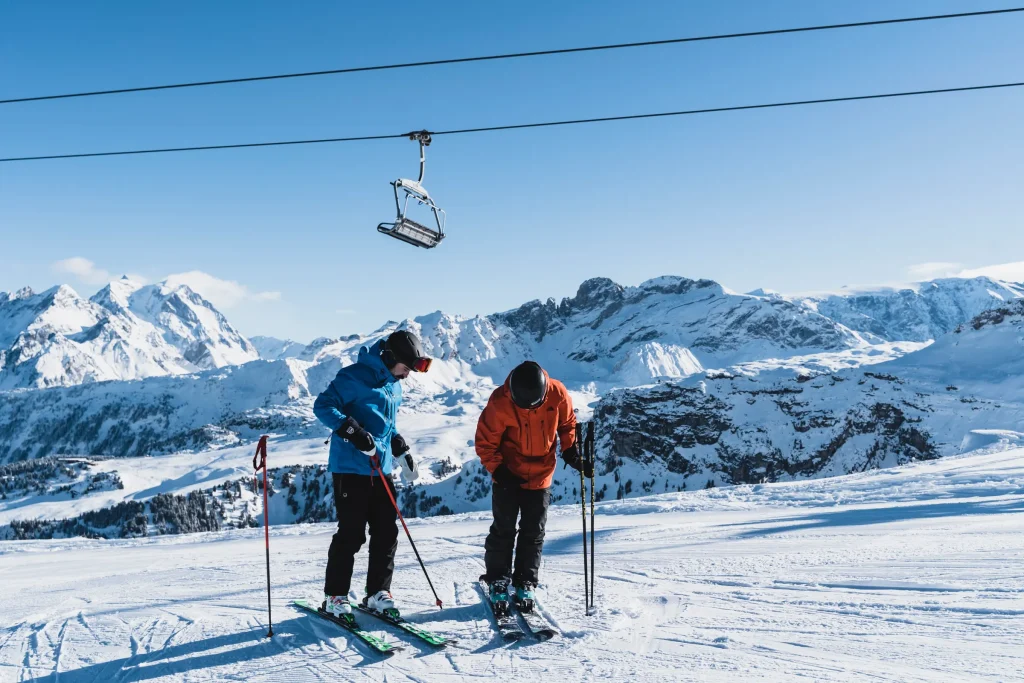
When embarking on your skiing journey, it’s important to remember that everyone is different and therefore everyone learns to ski at different rates. Some of the factors that can affect how quickly you can learn to ski include:
1. Age
Age can influence how quickly someone learns to ski, but don’t let your age deter you – you can learn to ski at any age! Children above the age of 4 tend to pick up the sport quickly due to their fearlessness, flexibility and ability to adapt to new movements. Read our guide to children’s ski lessons for more information on what age children should learn to ski. Teenagers and young adults also tend to learn at a solid pace, thanks to improved focus, determination and physical ability.
Older adults, while capable of learning efficiently, may face challenges like fear of injury, physical limitations and slower recovery times, but this varies depending on each individual. Ultimately, you can learn to ski at any age with the right mindset and approach. Learning to ski as an adult is a great opportunity to discover a new hobby and push yourself out of your comfort zone!
2. Fitness Level
Fitness level plays a key role in how long it takes to learn to ski. Skiing requires endurance, flexibility and strength, so individuals with a higher fitness level can better handle the physical demands of the sport and will tend to pick it up faster. Those with good cardiovascular health, strong legs and core and good balance will find it easier to control their movements and recover from falls.
On the other hand, people with lower fitness levels may struggle more with fatigue, muscle soreness and balance, which can slow down skiing progress. However, with consistent practice and proper instruction, anyone can learn to ski regardless of their fitness level. To help improve your ski fitness, try our free 6-week ski fit guide, designed in collaboration with professional ski physical therapist, Dr. Greg Louie.
3. Instruction Quality
The quality of instruction is one of the most important factors that can affect how long it takes to learn to ski. Investing in lessons with a professional instructor ensures you will receive expert guidance and personalised feedback on your technique, which will help you to build confidence and develop skiing skills more efficiently.
Both group lessons and private ski lessons offer a safe and supportive way to advance your skiing and ensure that you are progressing at the right pace. In contrast, self-teaching or learning from friends or family can lead to bad habits, slower progress and an increased risk of injury.
Taking ski lessons can significantly shorten the learning curve and make the entire skiing experience more enjoyable and successful. On Maison Sport, you have the unique ability to choose the perfect instructor to suit your needs, taking into account their teaching style and real customer reviews, so that you can book your lessons with complete confidence.
4. Previous Experience
Previous experience in similar sports can significantly impact how quickly you can learn to ski. If you have a background in activities that require balance, coordination, or agility, such as ice skating or rollerblading, you may find it easier to adapt to skiing, since you will already be familiar with some of the movement patterns and skills needed.
If you don’t have any prior experience in similar sports, it may take you a bit longer to build the coordination, balance and strength needed for skiing. However, regardless of prior experience, with practice, anyone can learn to ski at their own pace. Your sporting background can also affect whether you find skiing or snowboarding easier to learn. If you have experience doing wakeboarding or skateboarding, you may find snowboarding easier to learn than skiing.
5. Environment & Snow Conditions
The environment and snow conditions can play a significant role in how long it takes to learn to ski. Ideal conditions such as gentle slopes, clear weather and well-maintained snow, make it easier for beginners to focus on learning the basics without distractions or difficulty. On the other hand, challenging weather conditions like heavy snow, high winds or icy slopes may slow progress and increase the risk of falls and injury, particularly for new skiers.
Additionally, crowded resorts can make learning harder, as it may be difficult to navigate around other skiers. Skiing in a supportive and controlled environment, like beginner-friendly ski resorts or in areas with quieter slopes, can help learners gain confidence and accelerate their progress.
How Long Does it Take to Learn to Ski?
According to our instructors, after 2-3 days, most beginners can comfortably ski on green (easy) runs and will start to feel more confident.
Typically, complete beginners benefit from taking at least 3 lessons to establish a solid foundation in their skiing. Some people may feel comfortable after just one or two lessons, while others may require more time, but it’s important not to rush the process! It’s also crucial to practice between lessons to solidify skills learnt. Remember to keep focusing on your technique and to take breaks if you get tired. The more you practice, the better you’ll become!
One week in the mountains will give you a good skiing foundation to build on. However, additional time and lessons are generally needed to progress to intermediate slopes and to advance technique, especially if you want to improve your skiing quickly and learn how to ski parallel or tackle more challenging terrain.
What Will Your First Week of Learning to Ski Involve?
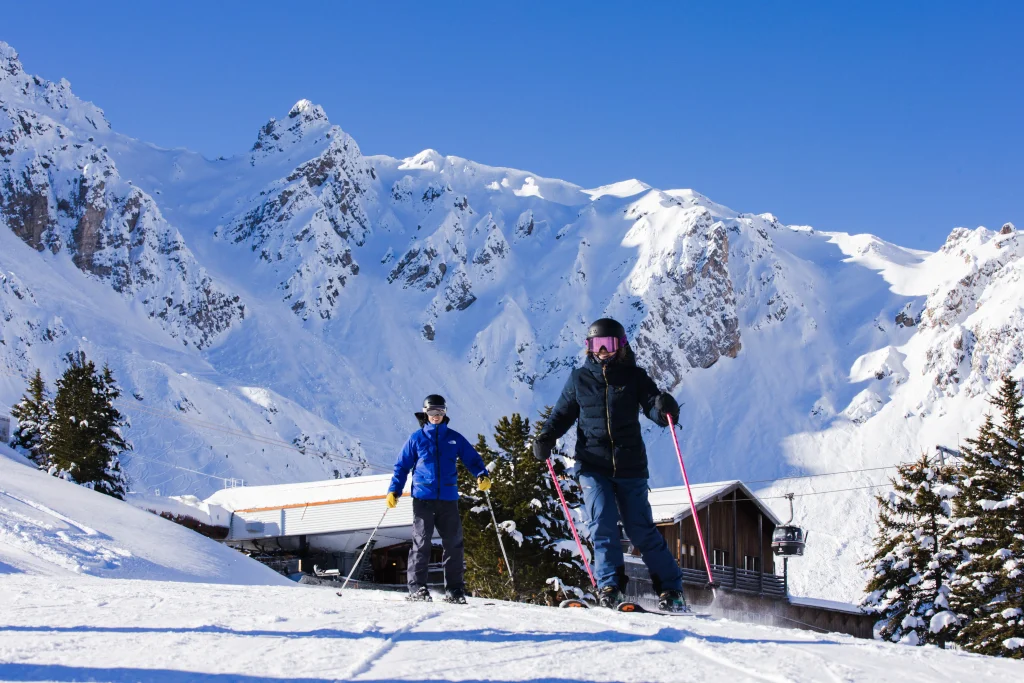
Here’s what your first week of skiing will typically look like:
Day 1: Getting used to the ski equipment, learning to balance and becoming familiar with basic movement patterns.
Day 3-5: Learning how to control your speed, learning how to stop and make basic turns using the snowplough technique.
Day 5-7: Practising basic skiing skills, building confidence on beginner slopes and skiing on new terrain.
What is the Quickest Way to Learn to Ski?
The easiest and quickest way to learn to ski is by booking lessons with a qualified instructor. Private one-to-one lessons, in particular, allow for focused individual attention and feedback that will lead to an increased rate of improvement.
Ski lessons with an expert instructor will help you build confidence and learn the correct technique in a safe and supportive environment so that you can advance your skiing as efficiently and effectively as possible. On Maison Sport, you can choose from 1,000+ instructors across any resort in Europe to find the perfect instructor for you!
